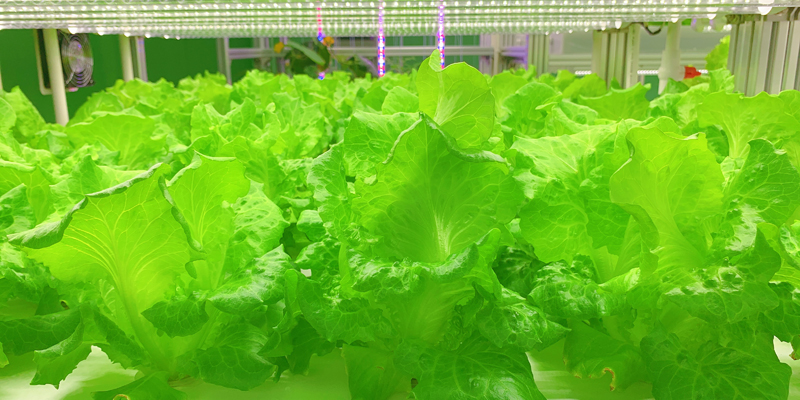文章來(lái)源:https://baijiahao.baidu.com/s?id=1621632932409138703&wfr=spider&for=pc
With the continuous improvement of modern people's living standards, people begin to pay more attention to the safety of vegetables and other food. However, with the development of industrialization, heavy metal pollution began to appear in soil, which directly affects vegetable cultivation. Now the emergence of hydroponic vegetables just avoids the pollution of heavy metals in soil. So, will hydroponic vegetables replace soil-grown vegetables in the future? What are the advantages of hydroponic vegetables compared with native vegetables?

First of all, soil culture has requirements for growth environment. Soil culture vegetable must grow in soil. If soil nutrients are not enough, it is not suitable for vegetable planting. Land area is limited and vegetable can not rotate, then the yield is very low. If bad weather lasts for a long time, the yield of vegetable will be affected.
In contrast, hydroponic vegetables require much lower growth conditions than native vegetables. By supplying nutrients for vegetables with nutrient solution, using intelligent control of temperature, water, light and carbon dioxide, and setting isolation zones to prevent the invasion of diseases and insects, soil rotation hindrance, climate disasters, pests and diseases can be effectively avoided, and there is no heavy metal pollution. No pesticides need to be applied to ensure the quality, safety and hygiene of vegetables.

Secondly, from the point of view of nutrient science, the nutrient solution supplied by hydroponic vegetables is composed of water and nutrient elements. Nutrient elements come from soluble inorganic fertilizers, which are made up of the same molecules as the nutrients needed by plants to grow in the soil. Hydroponics can accurately control the nutrients of vegetables. For consumers, this also means that the nutrient composition of vegetables is balanced and consistent.

